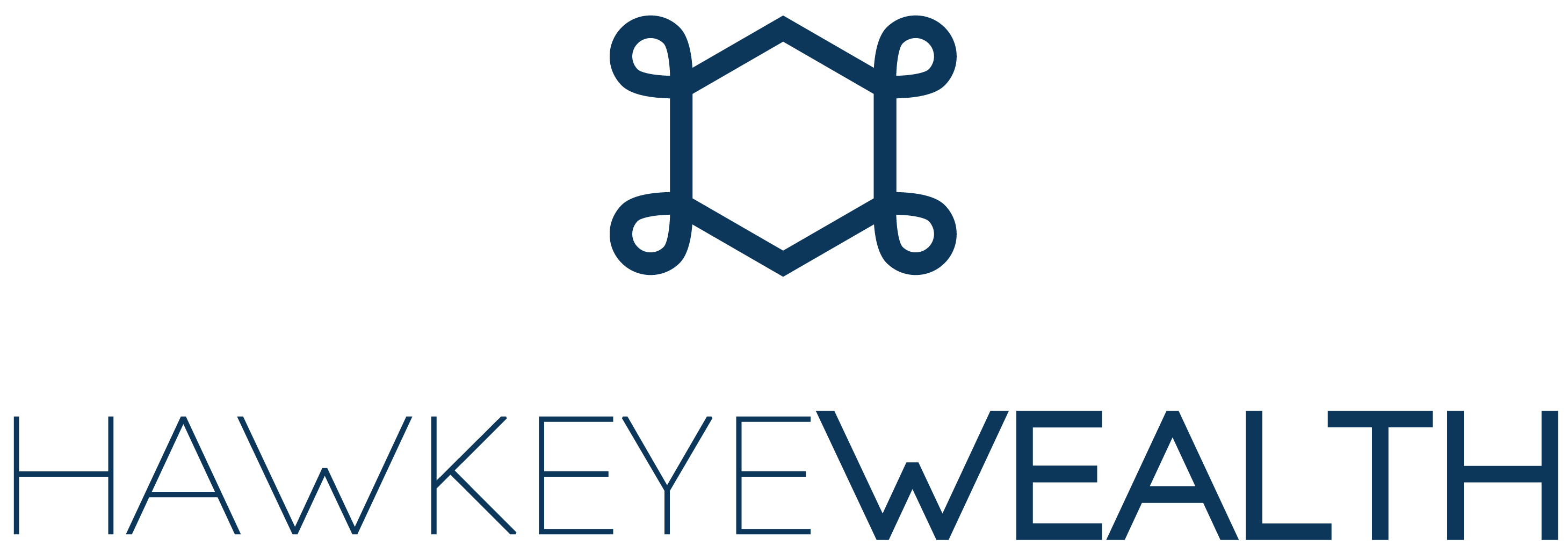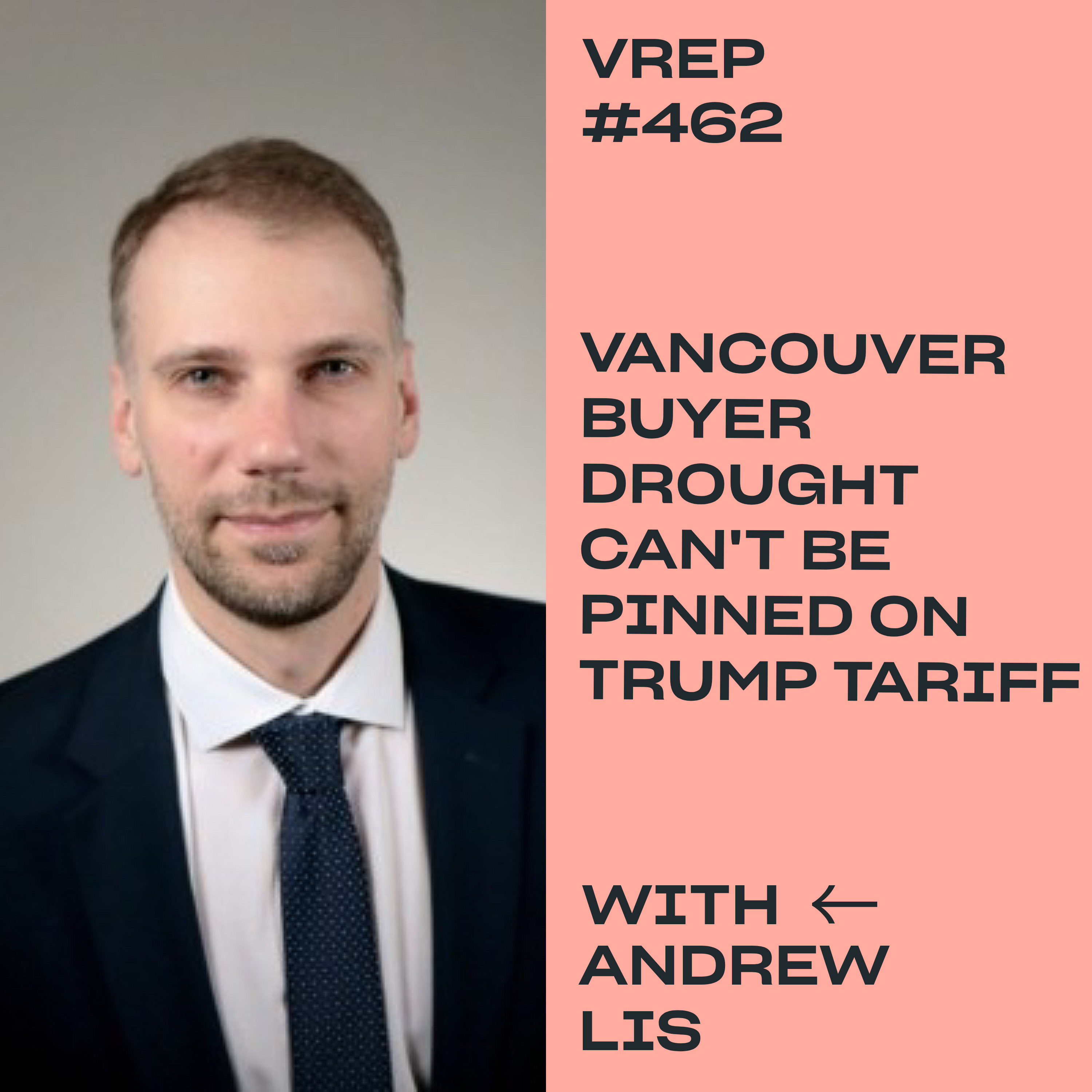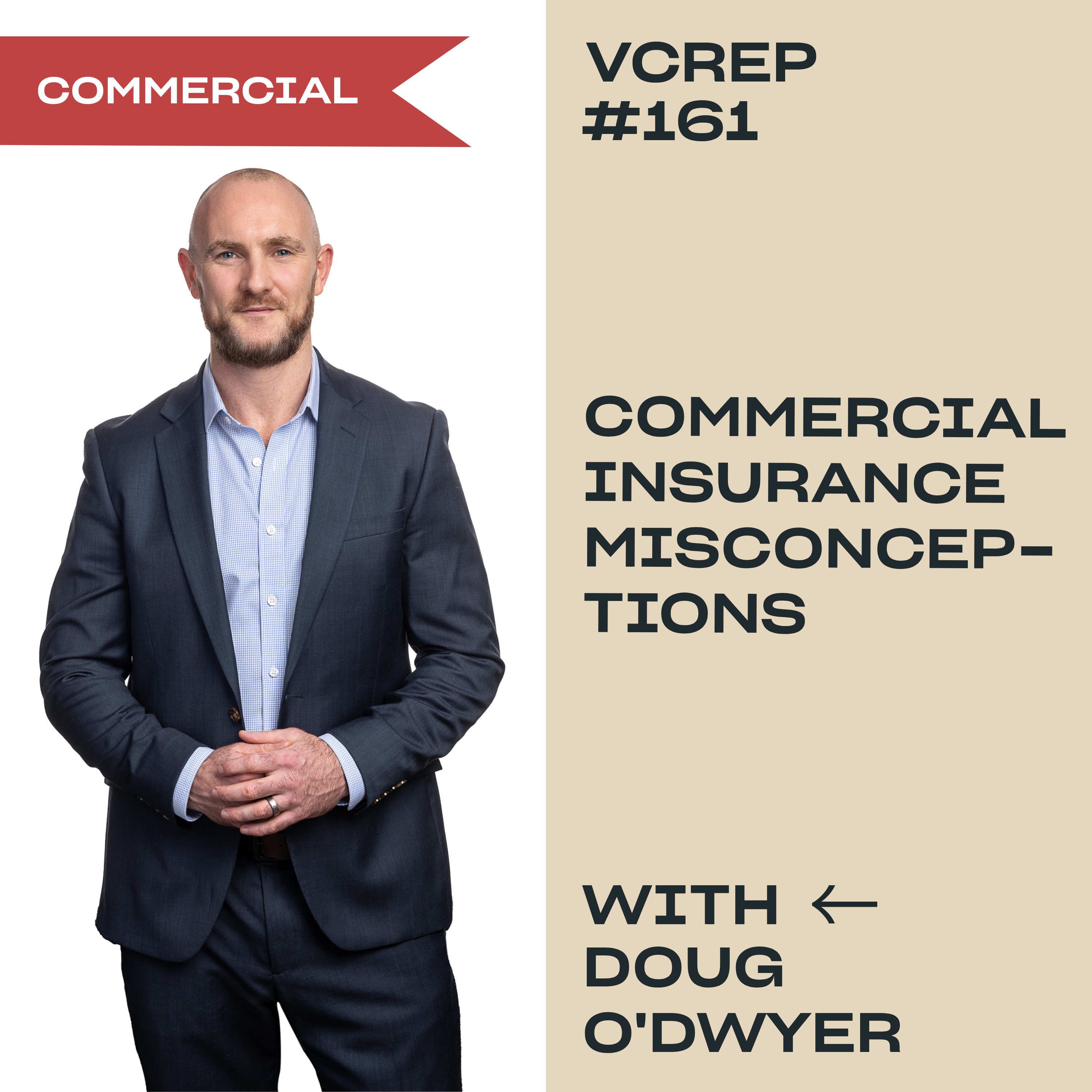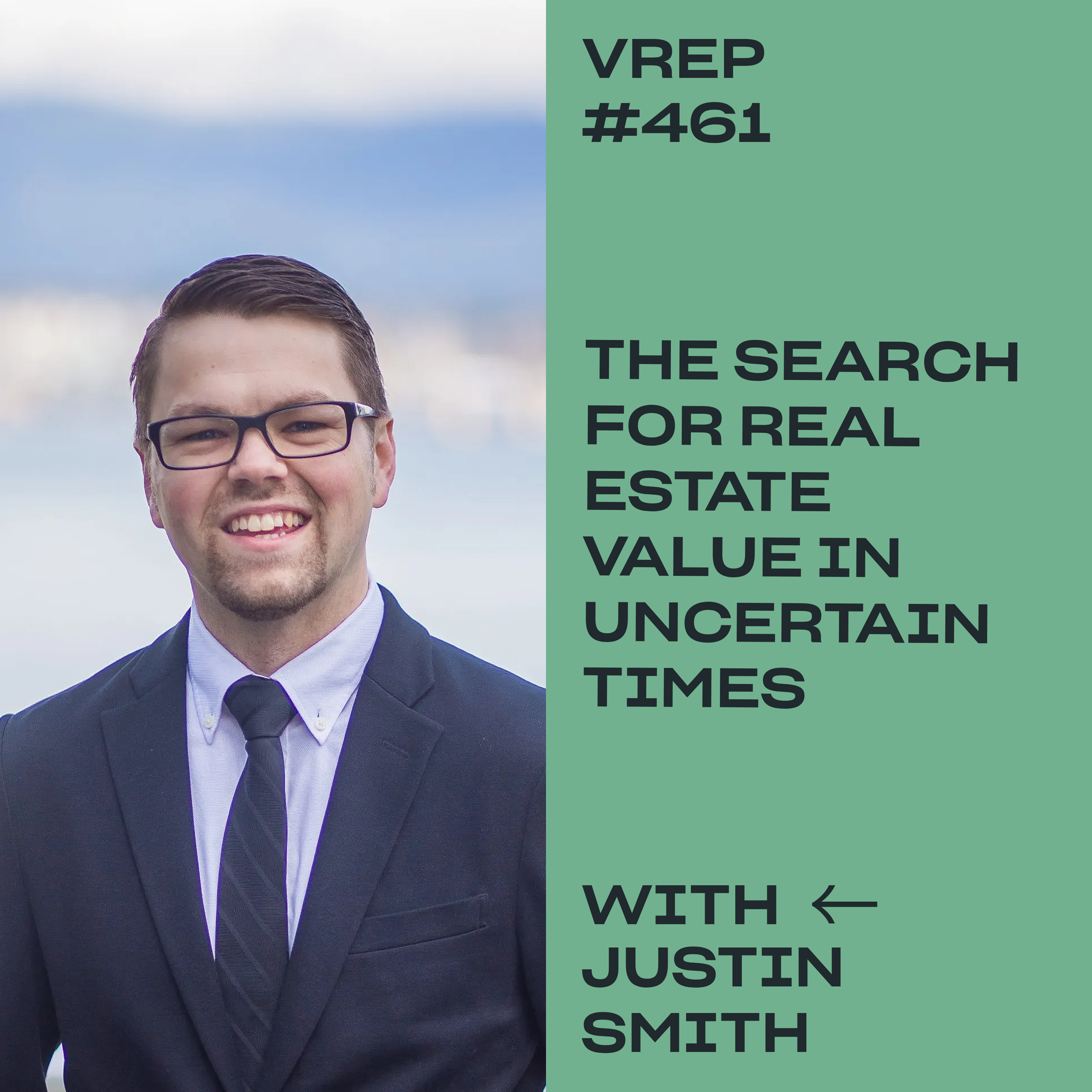Episode 313 – March 10, 2022
Listen On: Apple Podcasts | Spotify | Google Podcasts | YouTube
Clint Murphy, Host of The Pursuit of Learning Podcast, avid real estate investor, and CFO of a local development company, joins Matt & Adam in studio to discuss his evolving investment thesis, structured FIRE plans and goal setting, and where he sees the opportunities today. How should real estate inform your retirement plan? Which Kokomo stage are you in and what type of real estate should you buy? How can you set your plan in motion and stay committed and engaged?
Listen to Episode
Guest Information
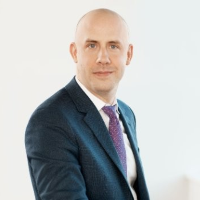
Clint Murphy
Clint Murphy is the Chief Financial Officer at Mosaic Homes. Clint is also the host of the Pursuit of Learning Podcast.
Episode Summary
Who is Clint Murphy?
I’m married and a father to two young boys. I’m the CFO of a real estate development company and invest in real estate. I’m a writer, reader and I host the Pursuit of Learning Podcast.
My wife and I lived in Bermuda from 2004-2006 working for KPMG as accountants. You get paid US dollars with no tax so it was a great way to make money, save money and then come back. We worked very long hours, which unfortunately meant we didn’t get down to the beach as often as we would’ve liked.
How did you get into real estate?
My wife and I have been together since 1995 and have always loved real estate. About 12 years ago, we finally pulled the trigger. I was in a rough situation with a job and discovered the concept of financial independence. How do I make sure I’m not in need of my job? For me, the answer was real estate. I had seen people grow their wealth through real estate and I wanted to get involved.
They say real estate is one of the easiest ways for people who aren’t geniuses to get rich. And that’s true. Real estate is a long and slow way for people to build wealth.
Living in Vancouver and hearing all the talk about real estate convinced me to leave my accounting firm to go and work for a developer. I like that with real estate, you can buy and hold, and never look at it. I was looking to hold long term and not flip. It was impossible for me to get in my own way, unlike with the stock market.
How did you get your first investment property? Did you have a real estate investment plan?
We first started our real estate journey by getting a big win on a townhouse in Olympic Village. We then got a few more wins under our belt. During that time, I was researching financial independence and trying to plan out the next 10 years. I wondered what would happen if I bought a property every year for the next decade.
With real estate you can get income through three ways: cash flow, which is hard to come by in Vancouver, principal pay down and capital appreciation. I realized that even if I have to put cash in every month, if I look at the principal pay down, I’m getting a big win. And even if we only see 3% appreciation, with a large enough portfolio, that’s massive. If you can build your portfolio large enough, small wins are magnified.
How did you get interested in financial independence?
The very first thing I did was find the blog Mr. Money Mustache. I read every blog post he had written, about 4-5 years worth of posts, in about two weeks. I then found a few other bloggers and people in the financial independence space. Within a few weeks, I was writing my own blog posts about financial independence.
Can you walk us through your Vancouver real estate journey so far?
Owning a townhouse in Olympic Village when the market caught on fire really changed things for us. I had never thought about a HELOC (home equity line of credit) but I was reading about it and decided it made sense for our Olympic Village property.
So we did the HELOC and used the money to buy two presale apartments: one in False Creek and one in Metrotown. Between the purchase date and construction completion, both of those units had doubled in price. One property we assigned along the way and the other we still own today. We used those proceeds to buy more real estate. So it became a cycle of accessing the equity and putting it into the next purchase.
How else are you preparing for financial independence?
On top of this HELOC model, we’ve also done significant savings of our salaries to get us closer to financial independence. We capped our lifestyle while our careers progressed so we can save more and retire sooner.
It’s not cutting down on your morning coffee that will get you to financial independence. It’s increasing your earnings, cutting down on your big expenses and investing the rest.
How did you first get into the Vancouver real estate market?
When we returned to Vancouver from Bermuda in 2007, we couldn’t afford to live in the city. So we moved to Coquitlam. I was worried I had destroyed my family by moving out of the country for a few years.
After the Olympics, Vancouver was a bit of a ghost town. A developer in Olympic Village had to drop their price in order to move forward with their project. So we were able to move from Coquitlam to Vancouver at a comparable price. We bought our Olympic Village presale in 2010 and didn’t close until 2013, giving our Coquitlam home three years of lift. So we experienced a huge equity win coming into Vancouver.
What was your real estate investment strategy?
I believe everyone should have an investment thesis but that thesis should change over time as the real estate market changes.
When we first started in real estate, my thesis was apartments in the city. When things started to get choppy in 2018/2019, my thesis shifted towards townhouses in the Fraser Valley.
In 2019, we put deposits on four townhouses in the Valley. Two closed in 2019 and two close in 2022. The goal was to buy the largest townhouses I could. I didn’t know covid was coming but it was a blessing to my investment thesis.
How do you develop and change your investment thesis?
You can look at real estate the same way you look at equities. There are going to be your big FAANG stocks (Facebook, Amazon, Apple, Netflix and Google). They are high cost and high appreciation. I equate those to real estate in the city of Vancouver going up 30% in a year but with no cash flow.
Then you have your blue chip stocks where you have some capital appreciation and maybe some cash flow. Those would be townhouses in the Valley. Next there are dividend stocks that have cash flow. We don’t really have those in Vancouver; you may have to go to Calgary or Edmonton to find cash flowing properties.
When do you change your real estate investment strategy?
There are bands around each real estate product type. It goes: single family home, townhome and then apartment. Once prices in one band go up so high, people begin asking, “Well, why would I buy this when I can just move into the next band and buy that?” For example, why buy a townhouse when you can be in a house for a similar price?
I realized that apartments were very frothy, the city was more frothy than the Valley and townhouse space was limited. That convinced me to change my investment thesis to townhomes in the Fraser Valley.
The second reason for the change in investment strategy was my role as a landlord. I’d much rather rent to a family in a townhouse than tenants in an apartment where there’s more turnover and risk of damage.
Why do you invest in presales?
There’s no significant differential to the price today for the presale relative to the resale product in the market. If presale is trading at a premium, it makes sense to buy if you think there will be significant price appreciation. You can put your deposit down today and not close for three years. If you think the market is at a low point and believe things will shift upward, as I did in 2019, it makes sense.
The farther out you look, the more sure you are that the market will trend up. So the longer I can ride it out, the better my returns.
What is your real estate investment thesis today?
I look at the bands between the three product types and I look at geographic circles. Which product type is moving the most in relation to the other three? And how are prices moving within each location? Through covid, most of the lift has been farther out and it’s been in single family homes and townhouses.
In the last three years, we haven’t seen a lot of movement in apartments downtown and the False Creek/Chinatown area. Looking forward, we have the hospital coming in and viaducts coming down. That tells me this is a good buy now for the future. There’s a long term win in that area. If I were to invest in Vancouver today, that’s where I’d go.
Personally, I’m looking at properties in Calgary or Edmonton. The downside of my current approach in Vancouver is that while I do get a lot of appreciation, I don’t get a lot of cash. And if I want to retire, I need that cash flow. I need to move into dividend real estate.
Keep your finger on the pulse of Vancouver’s real estate market with our Live Wire email newsletter.
Let’s talk about housing affordability, supply and demand.
It’s great to win in real estate when it comes to your retirement strategy and wealth building. But the downside is the lack of affordability it creates for our own children and young people in the city.
A lot of young people believe there should be a cap on how many homes people are allowed to buy. But that’s an attack on the demand side. If I own a second home that’s properly managed and I’m renting it out at a reasonable rate, that’s adding to the housing supply.
Back in 2018/2019, we had good starts but we didn’t have good presales. Construction numbers were good but people weren’t pre-selling towers. Presales dried up. And that determines what gets built two or three years later.
How can you achieve FIRE? What is your plan to retire early?
FIRE (financial independence retire early) can be achieved in different ways. Some people do Lean FIRE, where they live frugally, save up some money and then continue living lean. We’re closer to Fat FIRE, where you continue to live a nice lifestyle that you enjoy but you need a bigger nest egg in order to do so.
We look at the 4% rule. You can draw down 4% of your capital over time without damaging your ability to stay retired. For me, I never want to retire. I have a lot of things I want to do that generate income. But I don’t want to be dependent on those things. I want to have the flexibility to give those things time to generate income.
For the first half of my life, I was an accountant and I did well at that. But I studied psychology and writing, which I’d like to get back to. That would be a different lifestyle. I can afford to do that through the financial independence I acquire through real estate.
How do you structure your FIRE plan?
I take a pretty detailed approach but once you create your plan, you don’t have to look at it that often. When I built it, I looked at where I wanted to be in ten years and figured out what pillars I needed to hit along the way to get there. I pictured myself in retirement and the five to six things I’d be doing then. Then I worked it backwards to figure out what I need to be doing every year, every quarter, every week and every day to get there.
The other parts of our FIRE plan that I don’t really look at are cash flow and forecasting our net worth. I’m focused on how to increase our net worth. My wife handles the cash flow and has done some amazing things to get cash for us to work with our new investment thesis.
Step one of our FIRE plan was focused on assets. Step two, which I’m on now, is net worth based. I want to get our net worth to a specific number so we can utilize that 4% rule. And then step three will be focusing on cash flow in case our net worth is all tied up in real estate and we can’t access it.
Why are you invested in residential real estate instead of commercial real estate?
For me, it comes down to what you know. Most of my career has been in residential real estate. It’s all I’ve ever heard or ever read about. From a capital perspective, it probably would’ve been a lot higher for me to get into commercial real estate. With all the residential properties I’ve bought, I’ve usually had just enough to buy them.
Let’s talk about risk mitigation. How do you mitigate risks with your investments?
If you want to succeed in growing your wealth, you have to do your homework, come up with a thesis, be convicted and take action. I don’t come up with my investment thesis without talking to people in this industry who have more experience than I do. While it may feel risky at times, just our real estate portfolio is sitting at 60% loan to value ratio. So we do have a cushion.
Can you tell us about a financial failure on your real estate FIRE journey?
When we sold our Olympic Village townhouse and had that big win, we had a lot of cash. We bought in the middle of Mount Pleasant and, at that time, you didn’t have subjects on your offer because the market was so frothy. Turns out, the peat on our property was pretty bad. We had to move into a two bedroom apartment for three years and were 50% over budget trying to fix the issues with this property. The cash was starting to run out. After our builder delivered a quote that was three times what we had expected, I broke down. I thought everything we had built for our family was gone.
That was 2018. We finally moved into the home in December 2019 and three months later, covid hit. Being able to live in this house through covid has been the best two years for our family. It was a big failure financially, but it worked out. And with the way the market has rebounded, we’re finally slightly above water on this house.
Peat can be a serious problem in Vancouver. What issues did you run into with building?
We probably went 10% over budget just on our design decisions. But the big issues were the peat and a creek that ran through our yard. Water would come out every time they dug into the ground. We had to scaffold and tarp all of our neighbours’ homes because we were covering their houses with mud.
We were so scared that our build might compromise our neighbours’ homes. I would never build in a peat zone again but we are so happy with where we’re living.
What does financial freedom look like for you? Do you have a backup plan if FIRE fails?
You could have a net worth of $1 billion and still be worried that you don’t have enough money. You don’t want to stop because you’re worried the money will run out. I have that fear. So I have done a few things to mitigate against that. I’m doing “Kokomo and Pivot.” I’m not living at the beach doing nothing; I have things going on that I’m reasonably sure will make money.
I also have a fallback option. My disaster plan B is to sell the house, downsize, be mortgage free and then pay off the mortgages on all of our investment properties. That way, all of our investment properties would be cash flowing. That gives me the comfort I need to pull the trigger and retire on the date that I’ve discussed with my wife and my boss.
Most people I know get nervous approaching their retirement date. It’s hard to go from working 60+ hours a week to absolutely nothing. Why not try a year of working three or four days a week and ease your way into retirement? That transition time is key.
How do we do retirement better?
A lot of people don’t retire until their late 60’s with only a handful of not-so-great years left to live. That doesn’t seem right. The plan for my wife and I would be to live outside of Vancouver for at least six months of the year, living locally and still generating income from wherever we are. What people want from Kokomo is freedom. You have to build your life to give you that freedom.
Keep your finger on the pulse of Vancouver’s real estate market with our Live Wire email newsletter.
Episode Host

Adam Scalena
Adam is a full-service realtor, specializing in Vancouver’s best areas. His systematic approach to real estate and dedication to his clients has consistently placed him within the top 10% of realtors operating within Greater Vancouver.

Matt Scalena
Matt is real estate obsessed and considers himself a lifelong student of the Vancouver real estate market. As a co-manager of the Scalena Real Estate team, Matt prides himself on expertly advising buyers and sellers on all aspects of the fast-paced, dynamic Vancouver real estate market. He is present at every stage of the process, from that first phone call or email right through to when keys are exchanged between sellers and buyers.



